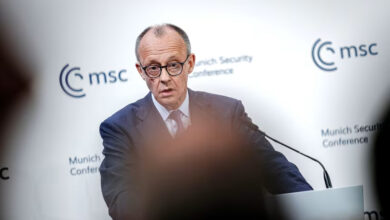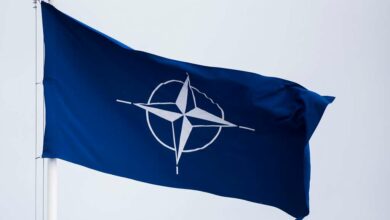Benghazi — Ashraf Mohamed Salem has never fired a gun in his life.
But the 27-year-old science student was one of several hundred eager volunteers who showed up at the Benghazi military barracks on Monday for a basic training course so he can join the rebel army facing Muammar Qadhafi's troops.
"We want to protect our families but we have no experience. I hope we will be good enough to go to the frontline but if not we will defend our homes," he told Reuters.
He said he had worked supplying food to the frontlines during the uprising against Qadhafi that broke out in mid-February but now he had decided to fight.
"I've never fired a gun before. That's why I'm here, to learn."
The rebel army is largely made up of young civilians and their fortunes have ebbed and flowed in the face of Qadhafi's better-armed and experienced troops.
The front line is now around Brega, about 230km by road southwest of Benghazi.
Their lack of training and military experience has been a concern not only to the rebel leadership but also to the foreign governments which have backed them with air strikes but are reluctant to commit ground troops to help topple Qadhafi.
The rebel leadership is making a concerted effort to improve matters. In the past week, there have been signs that former army officers were asserting more control over the often anarchic scenes at the frontline.
The recruits training at the Benghazi barracks were under the instruction of former army officers who had joined the rebel side, most of them coming out of retirement.
Fosi Al-Hado, a former marine commander in a slouch hat and camouflage uniform, said there little time to teach them a lot.
"We are training them with the weapons we have," he said. "Kalashnikovs, rockets launchers, machine guns. These are the only weapons that are available. We want long distance weapons, heavy artillery, missiles, to give us the advantage."
The training lasts a week and mostly covers weapons. Tactics will have to wait until later, said Hado, who said he had fought in conflicts in Uganda, Chad and Lebanon.
The best recruits are sent to the front but other fighters are needed to defend the city and strategic locations.
He said all the instructors were Libyan. No foreign personnel could be seen on the parade ground when Reuters visited the camp.
"We have no foreigners," Hado said. "We are all Libyans."
US and Egyptian soldiers have been reported to be training rebels in camps in east Libya but neither their governments nor the rebel leadership have confirmed this.
ALL CLEAR
Groups of recruits sat in circles on the parade ground around rocket launchers and cannon, listening intently to the instructors.
"This goes in this hole here. Is that clear?" said one instructor putting the barrel of an anti-aircraft gun back together.
"Yes," the recruits responded in a chorus.
Their numbers included students, doctors, businessmen and engineers as well as workers or unemployed people.
While Qadhafi is known for employing female bodyguards, there were no women fighters among the rebels, unlike in rebel armies in Nicaragua or Sri Lanka. They are assigned to other jobs in the revolutionary movement, an official said.
Hisham Mohamed, 32, a communication student, said he a personal reason for joining the fight.
"I've never had training before, never had a gun. I'm here because Qadhafi detained my brother. Since 1996. We don't know where he is or if he is still alive."
Because of this, he and his family were barred from getting government jobs, he said.
Commander Hado said it was likely to be a long and difficult fight.
"We have the will. We are fighting a professional army but we have God and right on our side. When Qadhafi goes, I'll go back to retirement."



